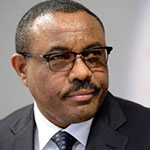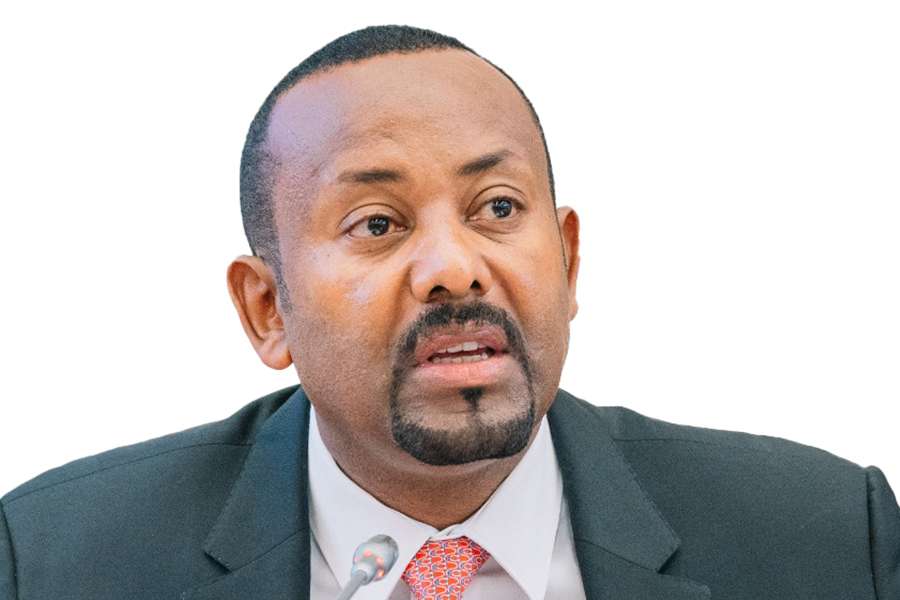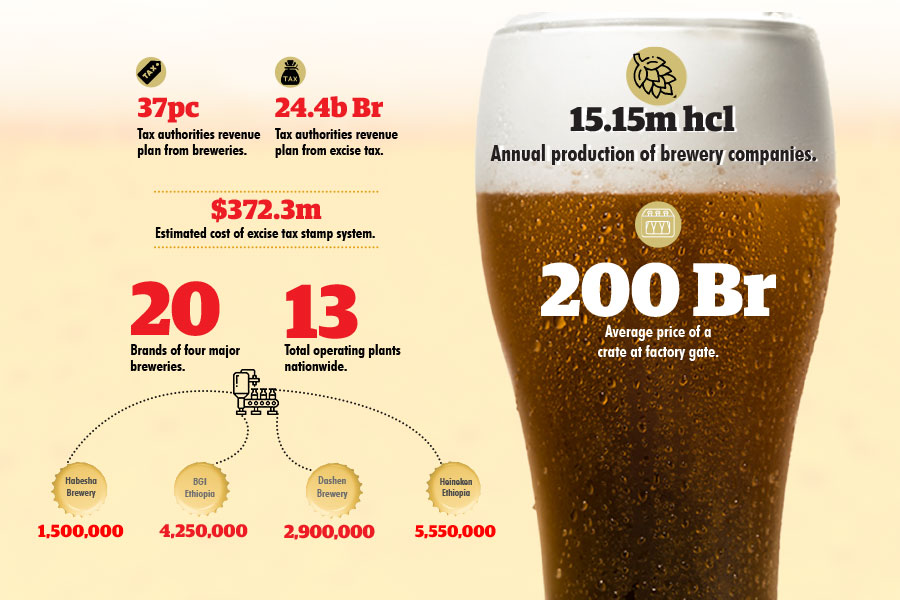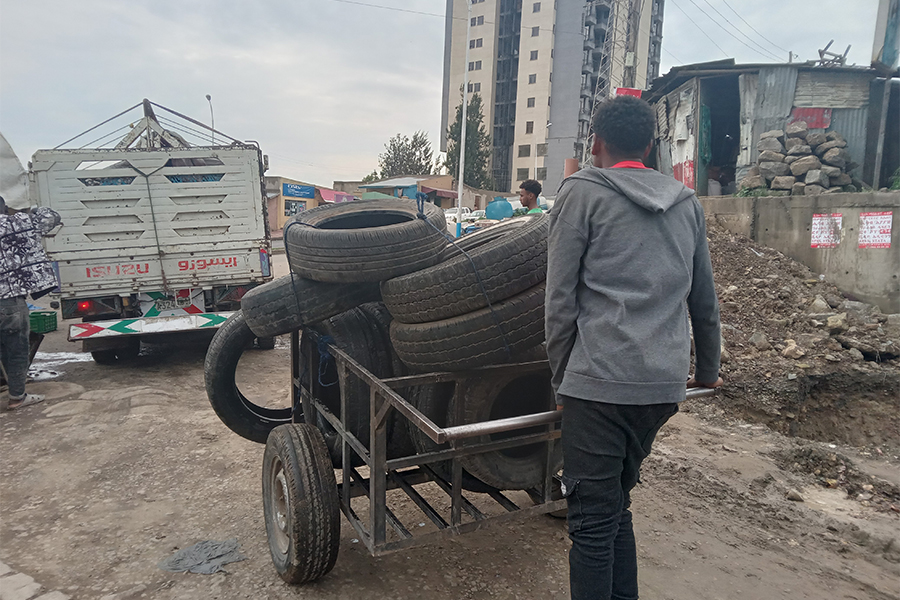
Advertorials | Jun 12,2023
Aug 20 , 2022
By Hailemariam Desalegn
About 57.9pc of the people in Africa are under-nourished. These statistics cannot be ignored. Everyone needs to come to the table and find solutions, writes Hailemariam Desalegn, former Prime Minister of Ethiopia and the chairperson of the Alliance for a Green Revolution in Africa (AGRA) and the AGRF Partner’s Group.
Promising progress is being made in Africa’s agricultural transformation. On my recent mission to Malawi, I witnessed the plans to create an Agricultural Transformation Agency in the country, a significant milestone in the journey towards fast-tracking transformation of the continent’s food systems.
This bold move by the government not only signifies a commitment to taking a holistic approach to dealing with hunger in the country, from the farm to the fork, but the creation of this body to coordinate different agencies’ efforts also sets a good example for the rest of the continent.
With eight years left towards the landmark 2030, when Africa, like the rest of the world, must have achieved the SDGs - notably the eradication of hunger, tackling food security will require global collaboration. It will require coordinated strategies, government commitment and large-scale action in mobilising resources needed to unlock Africa’s ability to feed itself and the rest of the world.
In just over one month, leaders from Africa and the world, scientists and farmers will convene in Kigali, Rwanda, for the AGRF Summit, which resumes in-person sessions after the last two years of the pandemic, when a hybrid format was adopted.
Under the theme "Grow, Nourish, Reward – Bold Actions for Resilient Food Systems," the summit will explore the action tracks that will accelerate food system transformation, especially after the 2021 UN Food Systems Summit, where over 30 African national pathways were charted, but which must now be turned into actionable strategies for the attainment of the Malabo, CAADP and Sustainable Development Goals (SDGs).
About 57.9pc of the people in Africa are under-nourished, according to the recently released State of Food Security and Nutrition in the World 2022, which also projects that hunger could increase, making Africa the region with the largest number of undernourished people. These statistics cannot be ignored, we need everyone to come to the table and find solutions. We all want better results, we are all interested in feeding our communities and economies that can thrive from agriculture and so we must challenge each other and keep each other accountable if we are to eradicate hunger.
Steps have already been taken by various stakeholders to deliver the innovations required to drive food system transformation, and these must be amplified for quicker impact. The Alliance for a Green Revolution in Africa (AGRA) has, for example, trained hundreds of seed scientists, who have released about 700 improved seed varieties for 18 different crops. Many of the commercialised varieties are of indigenous crops, which are already adapted to local conditions and have high nutrient values.
This is in addition to the capacitating of other experts who understand the intricacies of soil nutrition and can provide the best management plans for tremendous crop yields. For meaningful impact, such expertise must be circulated around Africa through partnerships with governments, the private sector and farmers’ organisations.
For agriculture to make sense, it must be viewed not just as a source of sustenance but as a rewarding business. It is, therefore, important that we capitalise on the food trade opportunities enshrined in the African Continental Food Trade Area (AfCFTA) to create new markets for smallholder farmers, who, on many occasions, are forced to watch as their produce decays away for lack of local buyers.
Outside the continent, we must continue collaborating with like-minded partners in advancing solutions for global challenges like climate change, which requires diverse technical capacity and financial resources to address.
These are some of the agenda items that will define the conversations in Kigali, where participants will come together to derive actionable strategies for a food system transformation built on ambition, action and partnership. Engagements at the summit will drive towards achieving climate action, promoting innovation, advancing market development, and deriving the right formulas for nutritious diets.
In addition, numerous investment opportunities will be presented by both the private sector and governments, including through the Agribusiness Deal Room, which last year alone registered commitments worth 12.5 billion dollars.
I am looking forward to exceptional outcomes from this year’s event, including detailed conversations on Africa’s response to climate change ahead of the 27th Conference of Parties (COP27), which takes place in Egypt later in the year. I invite everyone to reconnect and regroup with us, as we define the practical steps needed to transform and advance Africa’s food systems at the AGRF 2022 Summit.
PUBLISHED ON
Aug 20,2022 [ VOL
23 , NO
1164]


Radar | Nov 20,2023

Fortune News | Jul 28,2024

Fineline | Mar 07,2020

Covid-19 | Apr 04,2020

In-Picture | Jun 22,2024

My Opinion | 131981 Views | Aug 14,2021

My Opinion | 128369 Views | Aug 21,2021

My Opinion | 126307 Views | Sep 10,2021

My Opinion | 123925 Views | Aug 07,2021

Dec 22 , 2024 . By TIZITA SHEWAFERAW
Charged with transforming colossal state-owned enterprises into modern and competitiv...

Aug 18 , 2024 . By AKSAH ITALO
Although predictable Yonas Zerihun's job in the ride-hailing service is not immune to...

Jul 28 , 2024 . By TIZITA SHEWAFERAW
Unhabitual, perhaps too many, Samuel Gebreyohannes, 38, used to occasionally enjoy a couple of beers at breakfast. However, he recently swit...

Jul 13 , 2024 . By AKSAH ITALO
Investors who rely on tractors, trucks, and field vehicles for commuting, transporting commodities, and f...

Jul 5 , 2025
Six years ago, Ethiopia was the darling of international liberal commentators. A year...

Jun 28 , 2025
Meseret Damtie, the assertive auditor general, has never been shy about naming names...

Jun 21 , 2025
A well-worn adage says, “Budget is not destiny, but it is direction.” Examining t...

Jun 14 , 2025
Yet again, the Horn of Africa is bracing for trouble. A region already frayed by wars...

Jul 6 , 2025 . By BEZAWIT HULUAGER
The federal legislature gave Prime Minister Abiy Ahmed (PhD) what he wanted: a 1.9 tr...

Jul 6 , 2025 . By YITBAREK GETACHEW
In a city rising skyward at breakneck speed, a reckoning has arrived. Authorities in...

Jul 6 , 2025 . By NAHOM AYELE
A landmark directive from the Ministry of Finance signals a paradigm shift in the cou...

Jul 6 , 2025 . By NAHOM AYELE
Awash Bank has announced plans to establish a dedicated investment banking subsidiary...